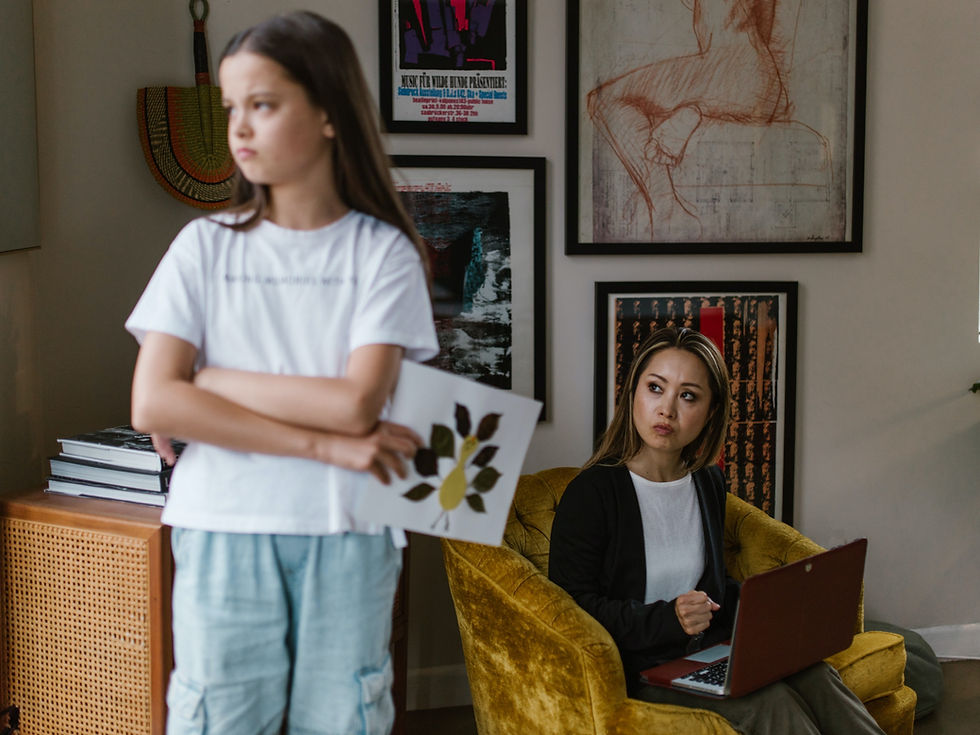Nurturing Children with Oppositional Defiant Disorder (ODD) in Foster Care: A Journey of Patience an
- Bamboo Sunrise

- Aug 27, 2023
- 3 min read
Fostering Resilience and Connection in Children with Oppositional Defiant Disorder (ODD) within Foster Care

Compassionate Strategies for Positive Growth and Connection. Explore how understanding, patience, and collaboration create a brighter future for children with Oppositional Defiant Disorder
"In nurturing children with ODD in foster care, we plant the seeds of resilience and connection, shaping a future of endless possibilities."
Working with children in foster care is a noble and rewarding task. However, when a child in foster care has Oppositional Defiant Disorder (ODD), the dynamics become unique and require special attention. By understanding the needs of children with ODD and employing strategies that promote positive relationships, foster parents and caregivers can provide an environment that nurtures their growth and development. In this blog post, we will explore the challenges faced when working with children who have ODD in foster care along with valuable insights and techniques to build strong connections with them.
Understanding Oppositional Defiant Disorder (ODD)
ODD is a psychiatric condition characterized by persistent patterns of disobedient and hostile behavior towards figures of authority. Children with ODD often display an individualistic streak and are prone to power struggles and confrontation. It is essential to remember that their behavior is a manifestation of internal distress rather than intentional aggression.
Creating a Safe and Supportive Environment
Establishing a safe and supportive environment for children with ODD is crucial. By fostering a sense of stability, consistency, and predictability, caregivers can lay the foundation for a therapeutic relationship. Offering clear expectations, providing regular routines, and maintaining an open line of communication serve as valuable tools to help children feel secure and understood.
The Power of Patience and Empathy
Working with children who have ODD requires an ample amount of patience and empathy. Developing a deep understanding of their struggles and emotions can lead to breakthroughs in behavior management. As the renowned psychologist, Dr. Ross W. Greene, aptly states, "Kids do well if they can, not if they want.” By embracing this mindset, caregivers can approach challenging situations with compassion, ensuring the child feels supported rather than judged.

Building Connection Through Active Listening
Active listening is a powerful tool for building connections with children who have ODD. By actively engaging in their conversations and offering nonjudgmental support, caregivers can foster an environment of trust and respect. The ability to understand and validate their emotions empowers children to express themselves more effectively.
Utilizing Positive Reinforcement
Active listening is a powerful tool for building connections with children who have ODD. By actively engaging in their conversations and offering nonjudgmental support, caregivers can foster an environment of trust and respect. The ability to understand and validate their emotions empowers children to express themselves more effectively.
Collaboration and Professional Support
When working with children who have ODD, collaboration with mental health professionals is crucial. Foster parents and caregivers should actively seek advice, resources, and support from therapists, counselors, and support groups specializing in ODD. These professionals can provide valuable insights and guidance to navigate challenging situations effectively.
Working with children with ODD in foster care demands dedication, patience, and unwavering compassion. By creating a safe and supportive environment, practicing active listening, employing positive reinforcement techniques, and collaborating with mental health professionals, caregivers can provide children with the stability they need to thrive. Remember, every child deserves love, understanding, and the resources to overcome their challenges. With our collective effort, we can make a positive impact on the lives of these young individuals and ensure a brighter future for them in foster care.



Comments